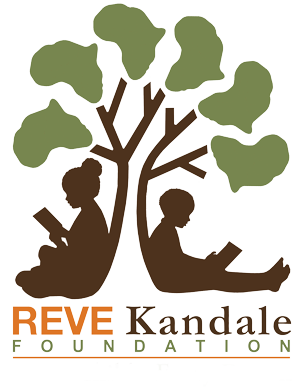NIne weeks ago on October 1st Colette returned to the village of Kandale for her annual trip to observe the progress of the many ongoing projects. This particular visit was coordinated with a representative engineer of ‘Water Mission’, Enock Kiraire, from the Uganda Country Office. Water was one of the top priorities during the community projects meeting in Kandale with RKF board members in 2018. RKF Co-founders Colette and Greg travelled to Charleston, SC in August this year to consult with Water Mission and to determine the possibility of installing a solar pumping system that will provide clean water to the community of Kandale.
During Mr. Kiraire’s visit he was able to investigate the Kwilu River and three springs to better evaluate the possibility of drilling a well and installing a water pump. His preliminary findings indicated that a fresh water pumping system would include two 16,000-liter tanks with year round availability as opposed to our present two 5,000-liter tanks with only a seasonal capacity. Mr. Kiraire and Colette presented the final proposal during a community meeting. The idea is to develop a system in two phases that would require two pump stations due to Kandale's high elevation. Community members are presently paying roughly 5 cents per demijohn or 25 liters for runoff water that is not potable for drinking. According to Mr. Kiraire's tests, the water quality in Kandale is of a very good quality and will not require filtration, but chlorine purification is necessary to ensure the water is suitable for drinking. The community is very supportive of this idea. Presently a second visit is in the planning to gather additional data to develop the necessary design and actual budget for the project. The estimated cost may be up to $50-55,000 with community members paying a nominal fee for clean water.
In addition, Colette has been in consultations with two other engineers, Frederick Kaniema from Kinshasa and Jean-Paulin Mesa from Kikwit as well as the head of Gufwa-Gubila High School in Kandale, Njimbo Mukala Kasembe. They discussed the recent collapse of the high school, featured in the previous Communiqué. The government sponsored Caritas school rooms have been completed and there was a great deal of discussion about how to distribute the primary school students to the new Caritas classes and how to make room for the high school students that lost their classrooms. The collapsed high school had been built some 40 years ago with primarily local materials: mud bricks, raffia framing and a corrugated metal sheet roof. It is remarkable that it has weathered the elements this long. The loss of this structure has had a domino effect on the remaining classrooms requiring some subjects to double and triple up and to even hold classes out of doors under makeshift palm fronds. To further confound the space issue, the government has declared free education to all primary school students. This decree is to be applauded, yet no funding has been provided for teachers salaries or material fees to accommodate the new increase in student enrollment.
As the REVE Kandale Foundation moves forward with the construction of seven new classrooms. Colette presented to the engineer in charge the desire to hire and train local individuals to help with the new construction. A variety of other topics were discussed with the community during her visit including the creation of separate living quarters for the matrons who monitor the girls dormitory and the importance of continuing to plant indigenous trees in the ‘wild’ areas.
The images that Colette brought back to the REVE Kandale board members were incredible. They are rich with stories of perseverance, dignity, progress and community. It is evident, that even with the loss of the old high school, positive and tangible change continues and the people of Kandale are responding with a genuine appreciation for the improvement in their daily lives.

































